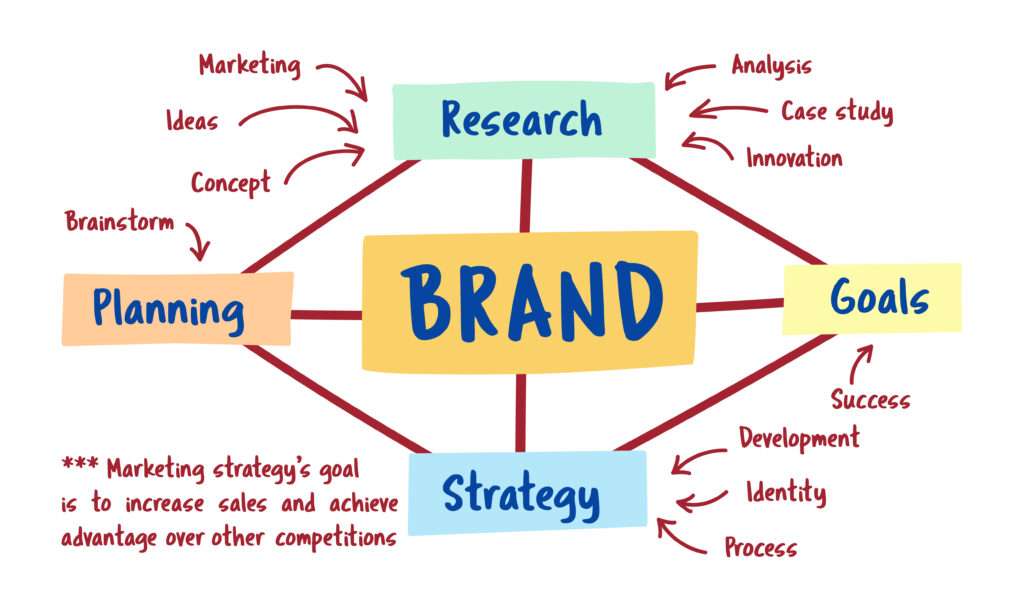
Personal branding is essential in today’s competitive environment; it is not an option. Whether you’re an entrepreneur, a freelancer, or a corporate professional, your personal brand defines how others perceive you. Think of it as the digital equivalent of a first impression, but it goes far beyond that. A well-crafted personal brand builds trust, enhances credibility, and distinguishes you from others in your field. But how can one develop a personal brand that connects to the target market? Let’s explore some key personal branding strategies that can help you stand out in your industry.
Understanding the Importance of Personal Branding
Personal branding is much more than a trendy buzzword. It’s a strategic effort to position yourself in your industry, showcase your expertise, and build a lasting, authentic relationship with your audience. In a professional setting, your personal brand can influence career opportunities, partnerships, and how you’re viewed by peers and clients alike.
As more people turn to social media and search engines to form opinions, how you present yourself online is more critical than ever. Effective personal branding strategies allow you to control the narrative, ensuring that what others see is what you want them to see.
Define Your Unique Value Proposition (UVP)

The first step in creating a powerful personal brand is figuring out what your Unique Value Proposition (UVP) is. What sets you apart from other professionals in your field? What skills or advantages do you have that others do not? Your UVP is what makes you unique and serves as the foundation of your personal brand.
To define your UVP, consider:
- Your skills and strengths
- Areas of expertise
- Personal values and beliefs
- Professional experiences
Pro Tip: Think of your UVP as the elevator pitch of your brand. Be concise, and make sure it clearly communicates your unique qualities.
Build a Consistent Online Presence
An online presence is the backbone of personal branding strategies. People often search for you online before deciding to work with you, so make sure what they find aligns with your personal brand. Social media platforms like LinkedIn, Twitter, and Instagram are crucial for building and maintaining your personal brand. But it’s not just about being present—it’s about being consistent.
Tips for Building an Online Presence:
- LinkedIn: Optimize your profile with a professional photo, a strong headline, and an informative bio. Share insights related to your industry regularly.
- Twitter: Share quick tips, thoughts, and links to industry-relevant articles. Engage with others through retweets and thoughtful replies.
- Personal Website: If possible, create a personal website or blog where you control all the content. Use it to showcase your portfolio, testimonials, and other relevant information.
Internal Link Suggestion: If you’re looking to optimize your LinkedIn profile for personal branding, check out our article on “Best Practices for LinkedIn Personal Branding.”
Leverage Storytelling to Engage Your Audience

Human beings are naturally drawn to stories. Storytelling is a powerful tool in personal branding because it allows you to connect with your audience on a deeper level. By sharing personal stories about your career journey, challenges you’ve overcome, or lessons you’ve learned, you humanize your brand. People don’t just want to know what you do—they want to know who you are.
How to Use Storytelling in Your Personal Brand:
- Share anecdotes about significant career moments.
- Write about your professional mission and what drives you.
- Highlight client success stories or lessons learned from failures.
External Link Suggestion: According to Forbes, storytelling is one of the most effective strategies for building a lasting brand connection.
Develop Thought Leadership
Positioning yourself as a thought leader in your industry is one of the most effective personal branding strategies. Thought leadership showcases your expertise and earns you credibility. By regularly sharing valuable insights and trends about your niche, you’ll become a go-to resource for others in your industry.
Ways to Build Thought Leadership:
- Write Blogs and Articles: Share in-depth articles on your industry’s latest trends or personal experiences on platforms like LinkedIn or Medium.
- Speak at Conferences or Webinars: Participating in public speaking opportunities gives you visibility and reinforces your position as an expert.
- Guest Appearances on Podcasts: Leverage podcasts as a way to share your insights with a broader audience.
Create a Personal Brand Statement

A personal brand statement is a concise declaration that sums up your unique skills, expertise, and what makes you stand out. It should be around one or two sentences and act as a foundation for your online profiles, email signatures, and resumes. A well-crafted personal brand statement helps potential clients or employers quickly understand your strengths and how you can bring value to them.
Example Personal Brand Statement:
I help small companies in growing their online presence and income by using SEO-optimized content and focused marketing techniques.
Network with Intent
Networking is a critical part of personal branding. While traditional networking methods (such as attending industry events) are still effective, online networking is now just as important. With platforms like LinkedIn, it’s easier than ever to connect with professionals in your field.
How to Network Effectively:
- Connect with Purpose: Don’t just add people to your network for the sake of numbers. Build meaningful connections by engaging with their content and starting thoughtful conversations.
- Attend Virtual Conferences: Many industries now offer virtual networking events where you can connect with like-minded professionals.
- Join Industry-Specific Groups: Whether on LinkedIn or other online platforms, join groups relevant to your field to stay updated on the latest trends and discussions.
Keep Your Personal Brand Authentic
One of the biggest challenges with personal branding is staying authentic. With so much emphasis on creating the perfect online presence, it’s easy to lose sight of who you are. However, authenticity is crucial if you want to build a brand that resonates with people. Your audience can quickly spot when something doesn’t feel genuine.
Tips to Keep Your Personal Brand Authentic:
- Be transparent about your strengths and weaknesses.
- Don’t exaggerate your achievements.
- Share both successes and challenges to show you’re human.
Use Visuals to Reinforce Your Brand
A picture is worth a thousand words, and when it comes to personal branding, visuals are essential. From the design of your website to the images you post on social media, visuals play a significant role in shaping your personal brand. Use professional photos, branded colors, and a consistent theme to reinforce your brand identity.
Visual Branding Tips:
- Use a professional headshot on your profiles.
- Keep your logo, colors, and fonts consistent across all platforms.
- Share images and videos that reflect your personal values or professional expertise.
Continually Refine Your Brand

Personal branding is an ongoing process. As you grow in your career, your brand will evolve, and it’s essential to revisit and refine it regularly. Stay updated on industry trends, and adjust your personal brand to reflect new skills, experiences, and professional milestones.
Steps to Refining Your Brand:
- Update your website and social profiles regularly.
- Seek feedback from colleagues or clients on how you’re perceived.
- Stay adaptable and be willing to pivot your brand when necessary.
Conclusion
Building a strong personal brand takes time, effort, and strategic planning. However, by focusing on key personal branding strategies—such as defining your unique value, leveraging storytelling, and maintaining authenticity—you can create a brand that sets you apart from the crowd. Remember, your personal brand is an extension of who you are, so let it reflect your true values and passions.
Whether you’re looking to advance your career, grow your business, or increase your online presence, personal branding is your key to success. Start today, refine as you go, and watch your professional reputation soar.
FAQs
How do I start building my personal brand?
The first step is to define your Unique Value Proposition (UVP). Understand what makes you unique, then build a consistent online presence and share your expertise through content.
Why is personal branding important for professionals?
Personal branding helps you control the narrative around your professional identity. It enhances credibility, attracts opportunities, and distinguishes you from others in your field.
Can storytelling enhance my personal brand?
Yes, storytelling humanizes your brand and helps you connect with your audience. Sharing personal experiences or lessons learned makes your brand more relatable.
How often should I update my personal brand?
Personal branding should be regularly updated to reflect your growth, new skills, or changes in your career. Revisiting it every six months to a year is a good practice.
Is LinkedIn essential for personal branding?
LinkedIn is one of the most powerful platforms for professional branding. A well-optimized LinkedIn profile allows you to showcase your expertise, network, and share content relevant to your field.
How can I maintain authenticity in my personal brand?
To stay authentic, be honest about your strengths and weaknesses, share real stories, and avoid exaggerating your achievements. Authenticity builds trust and loyalty among your audience.







